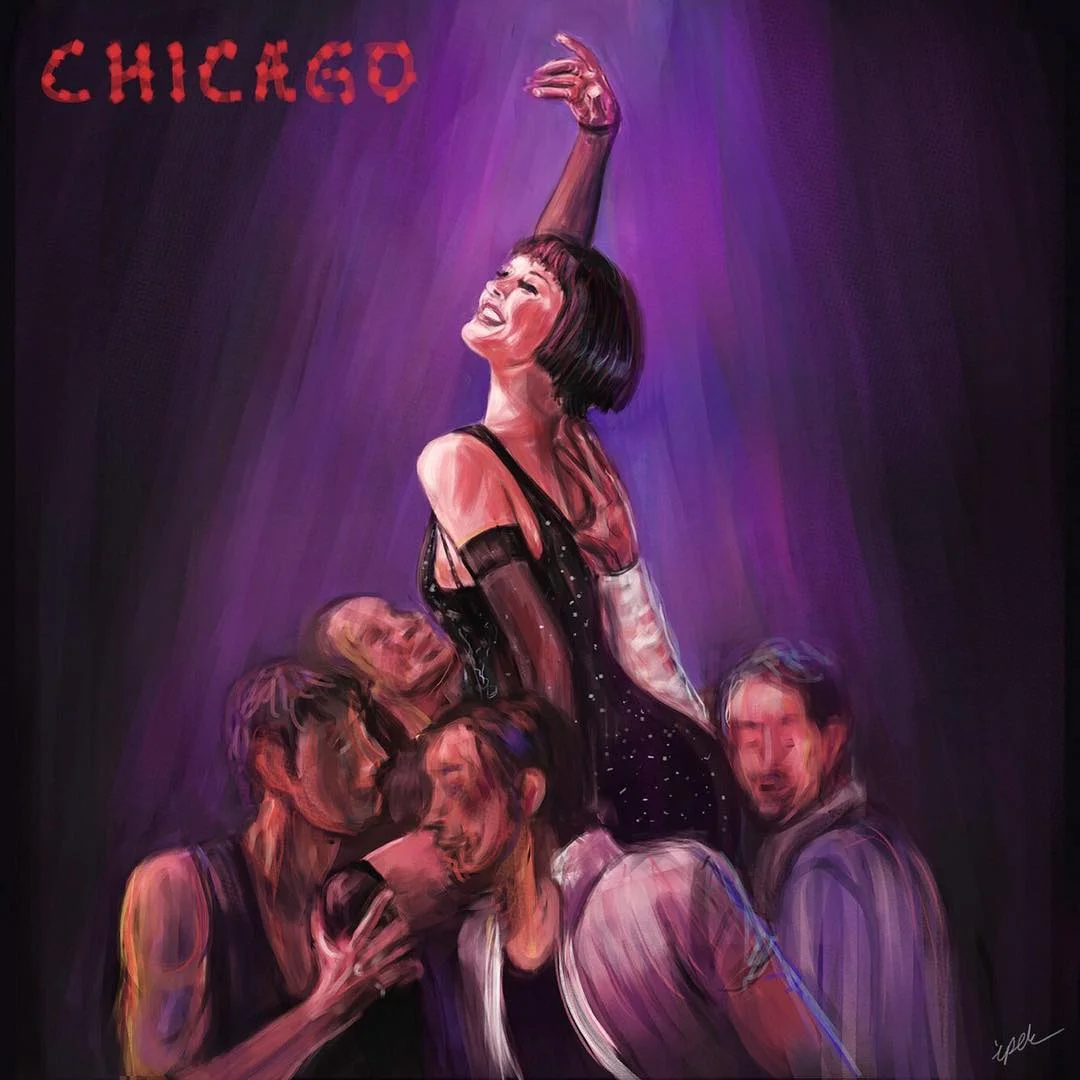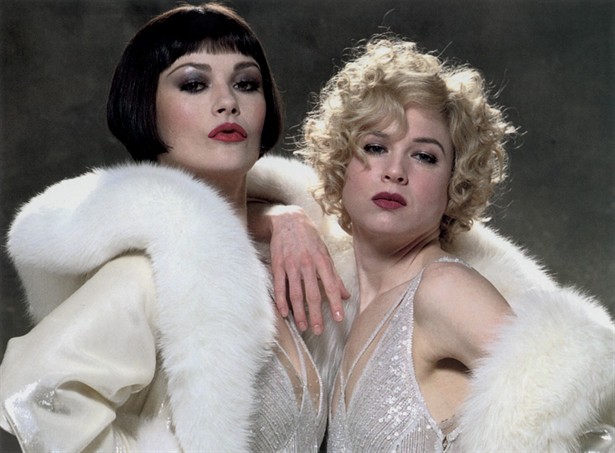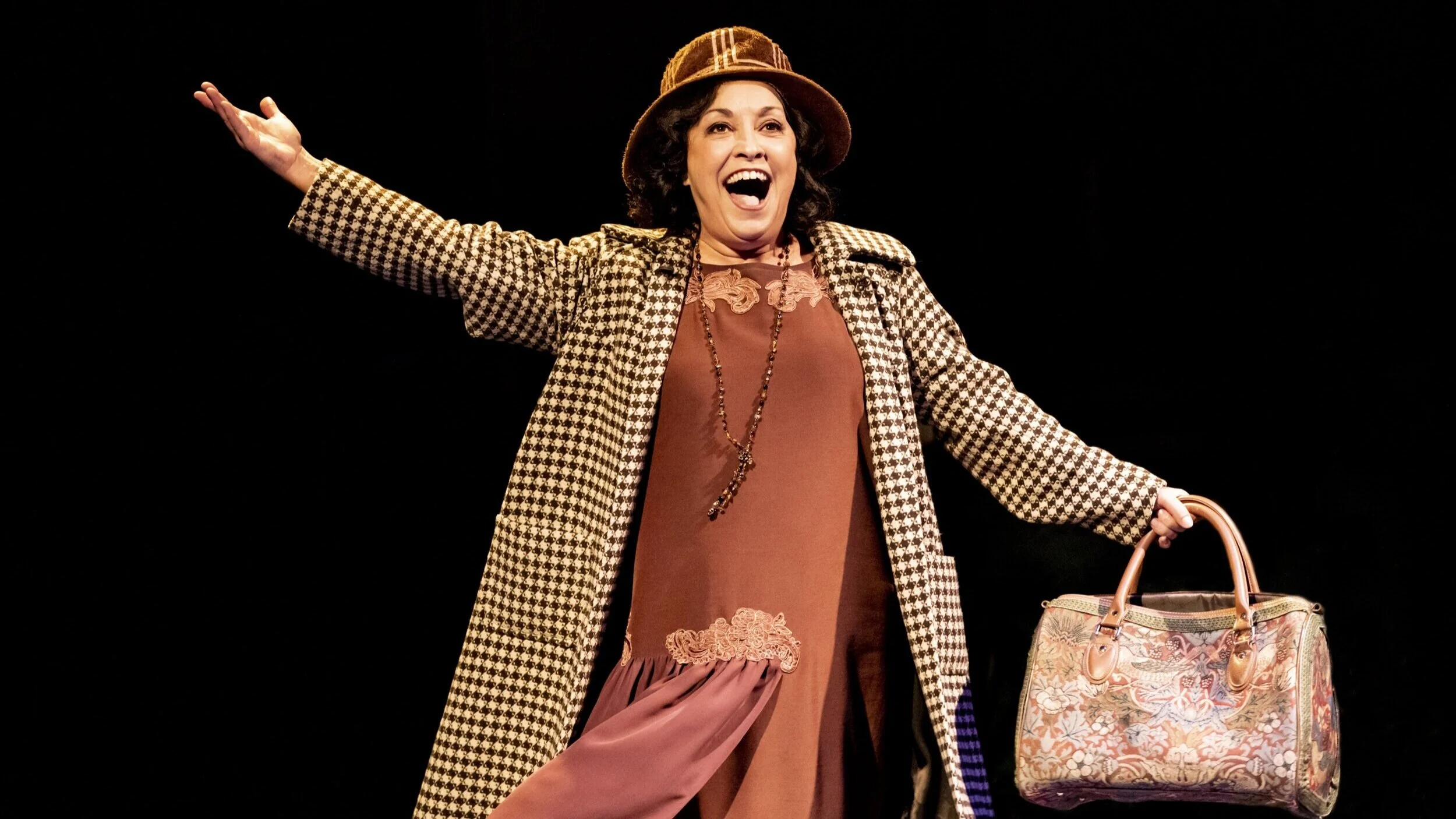Chicago: The Female Lament behind the Vaudeville
When Chicago was first adapted into a Broadway musical by John Kander, Fred Ebb, and Bob Fosse, each musical number was written in the vaudeville style. A vaudeville is a light, comic number, combining music and pantomime to entertain - but not to educate, or suggest a lesson in morality. The vaudeville is perfect for a caricature of 1920s Chicago, where life seemed to occur exclusively in the seductive smog of jazz bars, and rejecting the moral norms of previous decades was très à la mode. According to all our favourite depictions of this time, it was one of sexual liberation, misbehaving women, and the heady, corrupting, influence of jazz music and abundant liquor.
There’s something alluring about the irreverent way female jazz performances reclaim feminine sexuality and play a part in the subversive culture of jazz and metropolitan life. Chicago is a musical that tells women’s stories predominantly through performances by female characters, so it should feel like an empowering romp from one of the raciest decades of American history.
From Velma Kelly’s cry, “No, I’m no one’s wife but, oh, I love my life!” in ‘All that Jazz’, to hers and Roxie Hart’s climatic closing duet ‘Nowadays’, it’s a score that relishes in women’s liberation. “You can like the life you’re living, you can live the life you like; you can even marry Harry or mess around with Ike,” Roxie and Velma sing, all the while suggesting that they won’t be tricked into dependence on Harry or Ike.
But are the women in this story really triumphant?
Jones and Zellweger as Velma and Roxie in Chicago.
Despite the supposedly light, vaudeville style of Chicago, Kander, Ebb and Fosse’s adaptation (which takes inspiration from Maurine Dallas Watkin’s play of the same name) draws purposeful parallels between the legal system and the culture of celebrity and sensation journalism. The comparison, though satirical, strikes a rather serious chord under all the cabaret, cursing and relentless sarcasm. Whether intentionally or not, it brings to light some salient truths about the treatment of women by systems of power.
In 2002, Catherine Zeta Jones and Renée Zellweger starred in the movie adaptation, which positions each musical number as though it were happening in Roxie’s (Zellweger) imagination. Through the character’s naïve faith in the glitz of fame, coupled with lawyer Billy Flynn’s (Richard Gere) impressive courtroom tap dancing (and casual objectification of women), the film makes a clear comparison between showbiz and the legal system. It draws upon the societal obsession with celebrity criminals and scandal journalism that characterised the era and remains relevant in 2018.
The film has budget on its side, and you would be forgiven for buying into the razzle dazzle; but the comparative shabbiness of the show currently running at the Phoenix Theatre, London, undermines the audience’s ability to suspend their disbelief. The all-black costumes (think of your GCSE drama class performances) and disappointingly simple set (they manage to rustle up some confetti for Duncan James’ rendition of ‘Razzle Dazzle’, but that’s about as fun as it gets) unintentionally reveals the fragile illusion of glamour that the characters of Chicago have consumed.
What is stark in both versions is the limited power that these women actually have. The villainy of the six Cook County Jail murderesses, as told through ‘Cell Block Tango’, is temptingly redemptive as we hear the list of their murdered partners’ “crimes” against them. These are women who are repeatedly manipulated, cheated on, dismissed and abused by the men in their lives. Naturally we don’t condone murder at Harpy Mag (no, not even of your awful ex, sorry…), but as this dynamic sextet protest “how could you tell me that I was wrong?”, the various stabbings, shootings and poisonings seem almost justified. When a murdering heiress steals Roxie’s limelight, a vignette of the crime shows a cheating husband yelling at his outraged wife: “Are you gonna believe what you see, or what I tell ya?!”, thus including him in the swelling ranks of 1920’s f*ckboy gaslighters.
One number that’s left out of the 2002 movie is ‘My Own Best Friend’, which Alexandra Burke and Josefina Gabrielle bring to life on stage at the Phoenix. Though we hear lyrics of independence and self-sufficiency, the song feels like a lament. Velma and Roxie have learned the hard way that not even fellow women will support them in an individualistic age, in which women’s success depends on fierce competitiveness for the limelight. In reality, their beauty and the fleeting fascination of the tabloids is all the chips these women have to play. When public attention fades, even Duncan from Blue (sorry, their lawyer, Billy Flynn) seems to lose interest in their cases.
The musical’s commentary on the way the public become the jury in high profile crimes remains relevant today, as time and again the public are accused of unfairly meting out justice (often via Twitter) and taking part in so called ‘witch hunts’. Despite the uncomfortable way in which our social media punitive system can manifest (thanks to the brevity of public attention and tendency to accept headlines as representative of a whole), one thing remains true: we cannot rely on the system for justice, particularly when it comes to holding men accountable for their treatment of women.
What’s the one comforting factor in all this? I think it’s female friendship. Real friendship between women barely exists in Chicago, and the main characters scheme against each other and refuse to make connections that aren’t based on personal gain. And yet, Mama Morton (Mazz Murray) and Velma (Josefina Gabrielle) share excellent chemistry and steal the show at the Phoenix when they team up for a rendition of ‘Class’. On both stage and screen, Roxie and Velma salvage their meagre existence after prison when they come together, putting aside their instincts to compete with each other in order to dazzle twice as much as a double act.
Mazz Murray stuns as Mama Morton at the Phoenix Theatre, London.
Originally, when the score was being written for the stage, Roxie was intended as the focus of the narrative, but concerns about the health and stamina of leading lady Gwen Verdon lead to more stage time being given to Velma’s character. Though it was practically accidental, the result was a female-driven powerhouse of a musical which culminates in the thrilling alliance of two hardened veterans of showbiz.
Almost 100 years later, the unwitting moral of this dazzling musical remains pertinent… First of all, don’t murder men (unless they deserve it)*; and secondly, women are incredibly powerful when we stick together.
So as we navigate some truly difficult times, in which the legal and political systems seem to repeatedly fail women and absolve their abusers and harassers, we need to make sure that we are willing to stand up for the women in our lives. When we support each other, believe each other, and raise up our voices together, then we truly triumph.
*Just kidding about the murder, guys.
Title image by Ipek Komurcu
Photographs of Jones and Zellweger sourced via Pinterest, and of Mazz Murray via Chicago On Stage.







